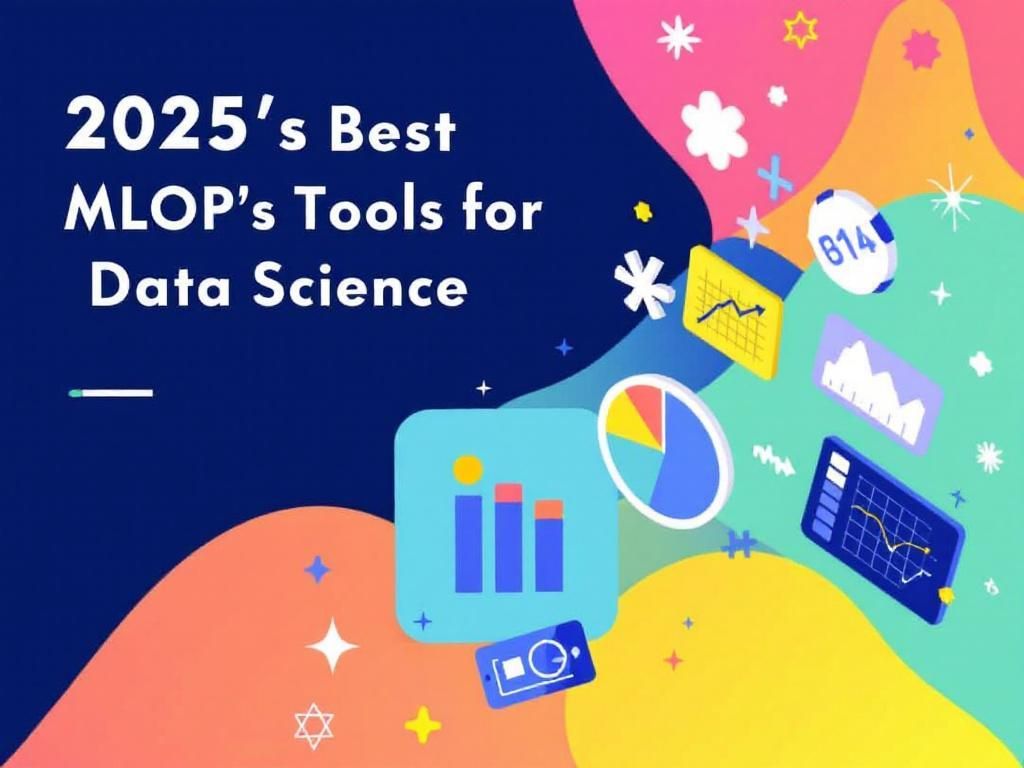As the field of data science evolves rapidly, it has become increasingly essential for companies to streamline their operations, especially when it comes to deploying machine learning models. This is where MLOps (Machine Learning Operations) comes into play, providing a framework to manage the lifecycle of ML projects. In this article, we’ll explore some of the best MLOps tools expected to dominate the landscape in 2025, helping data scientists and organizations enhance their productivity and efficiency.
Understanding MLOps
MLOps is a set of practices that aims to deploy and maintain machine learning models in production reliably and efficiently. It combines principles from DevOps (development and operations) with Machine Learning to ensure that ML models can be monitored, maintained, and updated with minimal friction. Here are some key components of MLOps:
- Model Training and Validation
- Continuous Integration and Continuous Deployment (CI/CD)
- Monitoring and Logging
- Collaboration Between Data Scientists and Operations Teams
Top MLOps Tools for 2025
Let’s dive into some of the most effective MLOps tools that are poised to make a significant impact in the coming years:
1. MLflow
MLflow is an open-source platform designed to manage the ML lifecycle, including experimentation, reproducibility, and deployment. Its main features include:
- Tracking experiments to log parameters, metrics, and artifacts
- Packaging ML code in a reusable format
- Sharing and deploying models in various environments
2. Kubeflow
Kubeflow is a powerful tool designed to run ML workloads on Kubernetes. It provides a comprehensive toolkit for building, training, and deploying machine learning workflows. Important features include:
- Jupyter notebooks for interactive development
- Training operators for distributed training
- Pipeline management for complex workflows
3. DataRobot
DataRobot is a platform that automates much of the machine learning process, enabling users to build and deploy models without needing deep technical expertise. Its standout features include:
| Feature | Description |
|---|---|
| Automated Machine Learning | Facilitates the model selection process automatically based on the dataset. |
| Model Monitoring | Tracks model performance and alerts users to potential issues. |
| Collaboration Tools | Enables teams to work together effectively and share insights. |
4. TFX (TensorFlow Extended)
TFX is an end-to-end platform for deploying production ML pipelines using TensorFlow. TFX integrates seamlessly with TensorFlow and provides:
- Data validation and preprocessing
- Model training and serving capabilities
- Integration with other Google Cloud services
5. H2O.ai
H2O.ai is known for its ability to provide end-to-end AI solutions. It specializes in automated machine learning and assists businesses in operationalizing AI. Key features are:
- AutoML for model generation
- Interpretable machine learning models
- Scalable machine learning engine
Choosing the Right MLOps Tool
Selecting the right MLOps tool can greatly depend on your organization’s specific needs and technical abilities. Here are some criteria to consider when choosing an MLOps solution:
- Integration: How well does the tool integrate with your existing data pipelines and machine learning frameworks?
- Scalability: Can the solution scale as your data and team grow?
- User-Friendliness: Is the tool easy for your team to adopt and use without extensive training?
- Support and Community: Does the tool have a robust support system and a strong user community?
Future Trends in MLOps
As we look toward 2025, several trends are expected to shape the MLOps landscape:
1. Increased Automation
Automation will continue to be a significant trend, with tools becoming more sophisticated in automating tasks such as feature selection, hyperparameter tuning, and model deployment.
2. Enhanced Collaboration
Collaboration between data scientists and other stakeholders will become more critical, leading to the development of tools that facilitate better communication and cooperation across teams.
3. Focus on Ethics and Compliance
As data privacy concerns grow, MLOps tools will increasingly incorporate features that help organizations ensure ethical practices and compliance with regulations like GDPR.
4. Integration with Edge Computing
As IoT devices proliferate, MLOps tools will need to adapt to support deployment on edge devices, enabling real-time analytics and model inference.
Conclusion
The field of MLOps will continue to evolve as new challenges arise and technology advances. By exploring the best tools available in 2025, organizations can stay ahead of the curve, ensuring that their machine learning initiatives are not only successful but also sustainable in the long run. Whether you’re an established enterprise or a startup, embracing the right MLOps practices and tools is essential for achieving your data science goals.
FAQ
What are the top MLOps tools for data science in 2025?
In 2025, some of the best MLOps tools include MLflow, Kubeflow, TFX, DataRobot, and SageMaker, which provide robust features for model deployment, monitoring, and collaboration.
How do MLOps tools improve the data science workflow?
MLOps tools streamline the data science workflow by automating model training, deployment, and monitoring, enabling teams to focus on improving model performance and reducing time-to-market.
What features should I look for in an MLOps tool?
Key features to consider include model versioning, reproducibility, scalability, integration with CI/CD pipelines, and support for collaboration among data scientists and engineers.
Are open-source MLOps tools effective for enterprise use?
Yes, many open-source MLOps tools are highly effective for enterprise use, offering flexibility and customization while being supported by large communities. Examples include Kubeflow and MLflow.
How can MLOps tools enhance model performance monitoring?
MLOps tools enhance model performance monitoring by providing real-time analytics, automated alerts for performance degradation, and dashboards for visualizing model metrics.
Can MLOps tools integrate with popular data science frameworks?
Absolutely, most MLOps tools are designed to integrate seamlessly with popular data science frameworks such as TensorFlow, PyTorch, and Scikit-learn, facilitating smooth workflows.




